Gori, Georgia on:
[Wikipedia]
[Google]
[Amazon]
Gori ( ka, გორი ) is a city in eastern
 The territory of Gori has been populated since the early
The territory of Gori has been populated since the early 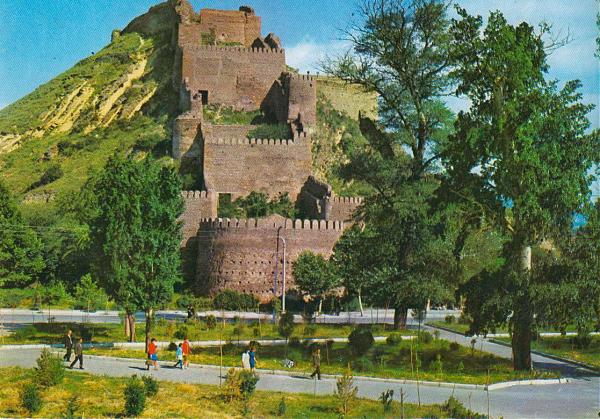 With the downfall of the medieval
With the downfall of the medieval
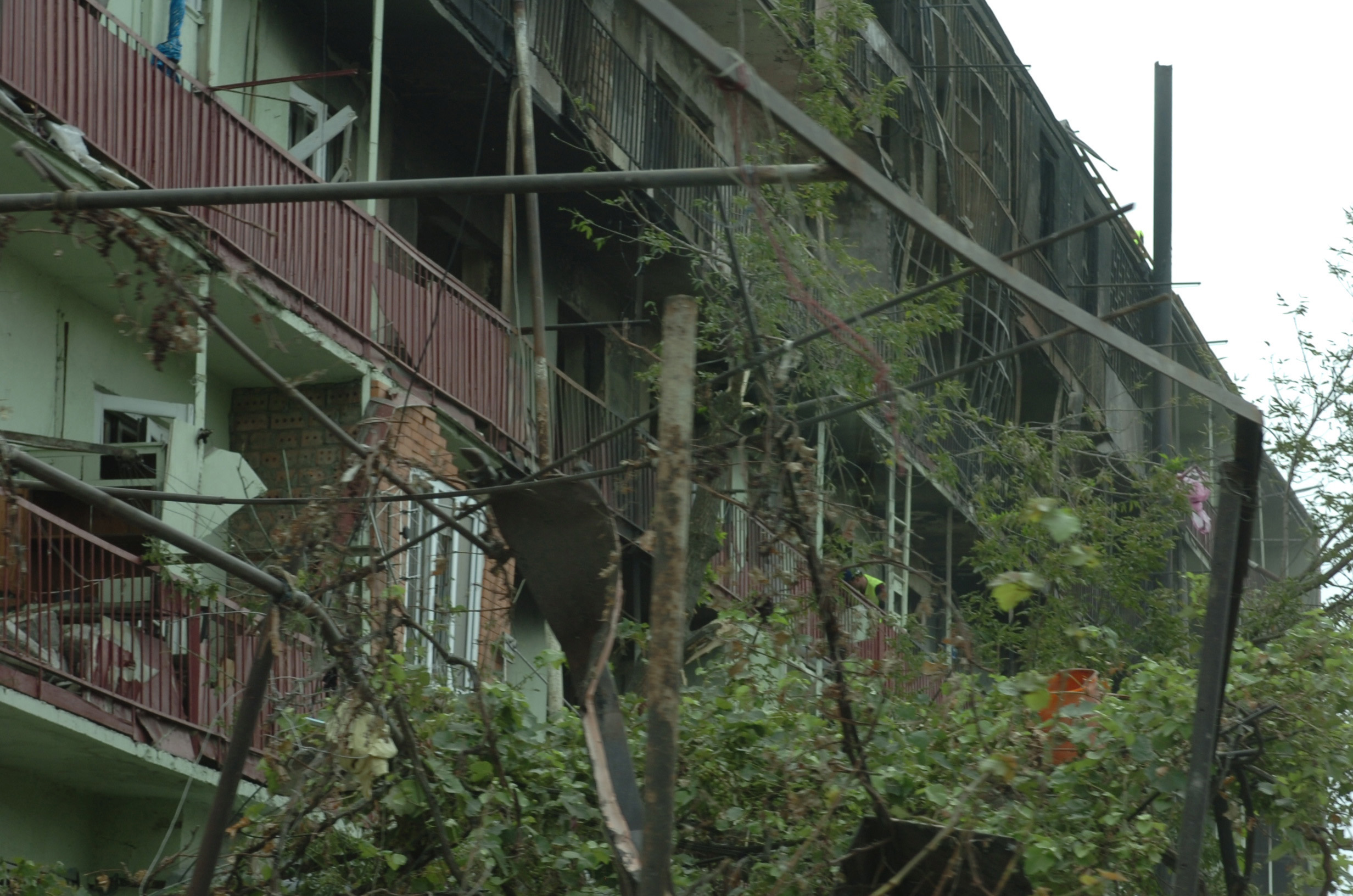 In the 2008
In the 2008
23 August 2008 The following day Units of the Georgian Army returned to Gori. However, Russian checkpoints remained near Gori as well as in so-called buffer zones near the borders with Abkhazia and South Ossetia.


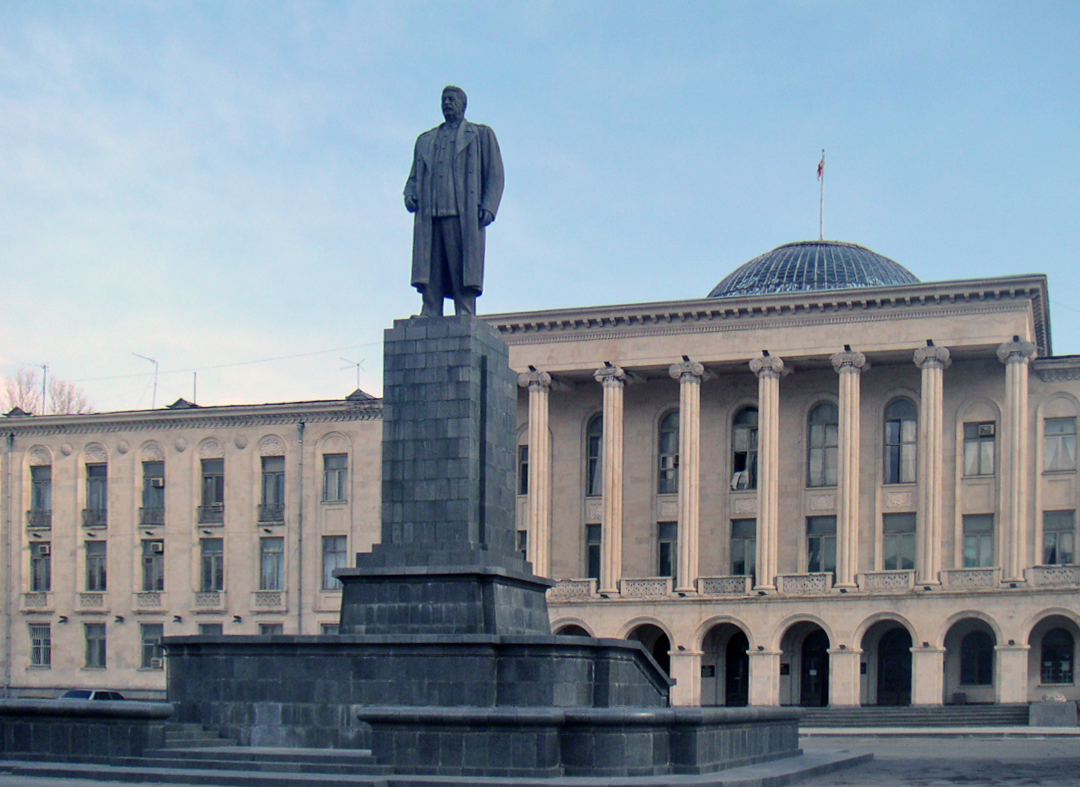
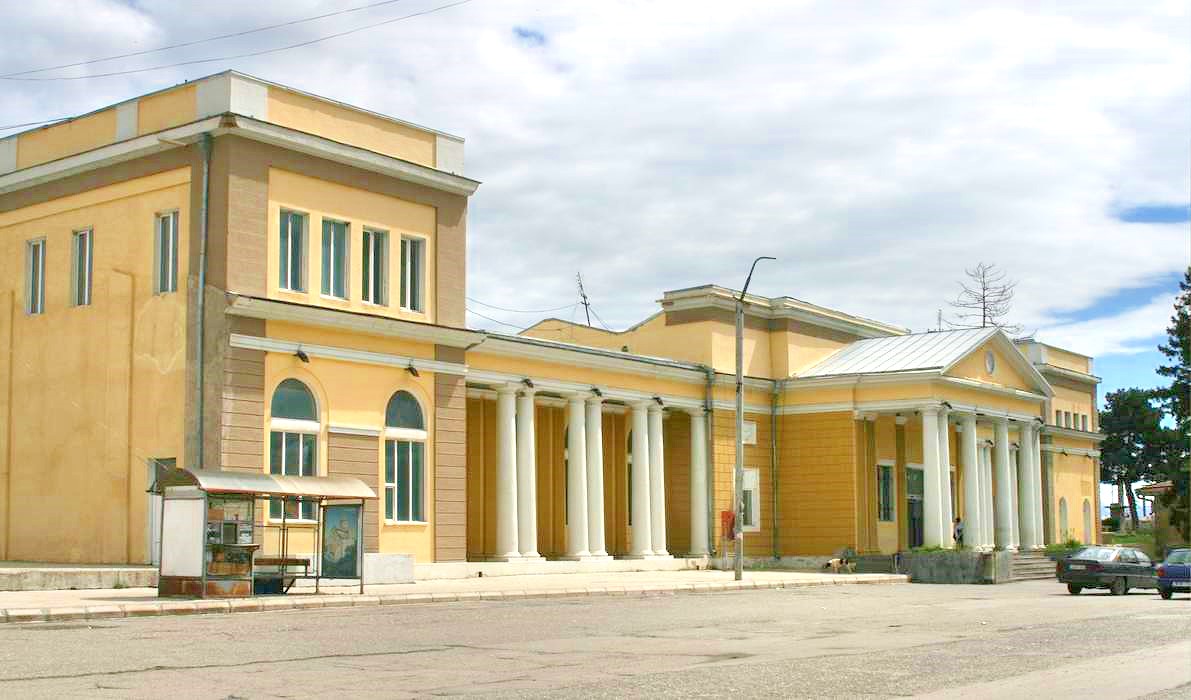

 Gori and its environs house several notable cultural and historical landmarks. Although for many foreigners Gori is principally known as the birthplace of
Gori and its environs house several notable cultural and historical landmarks. Although for many foreigners Gori is principally known as the birthplace of
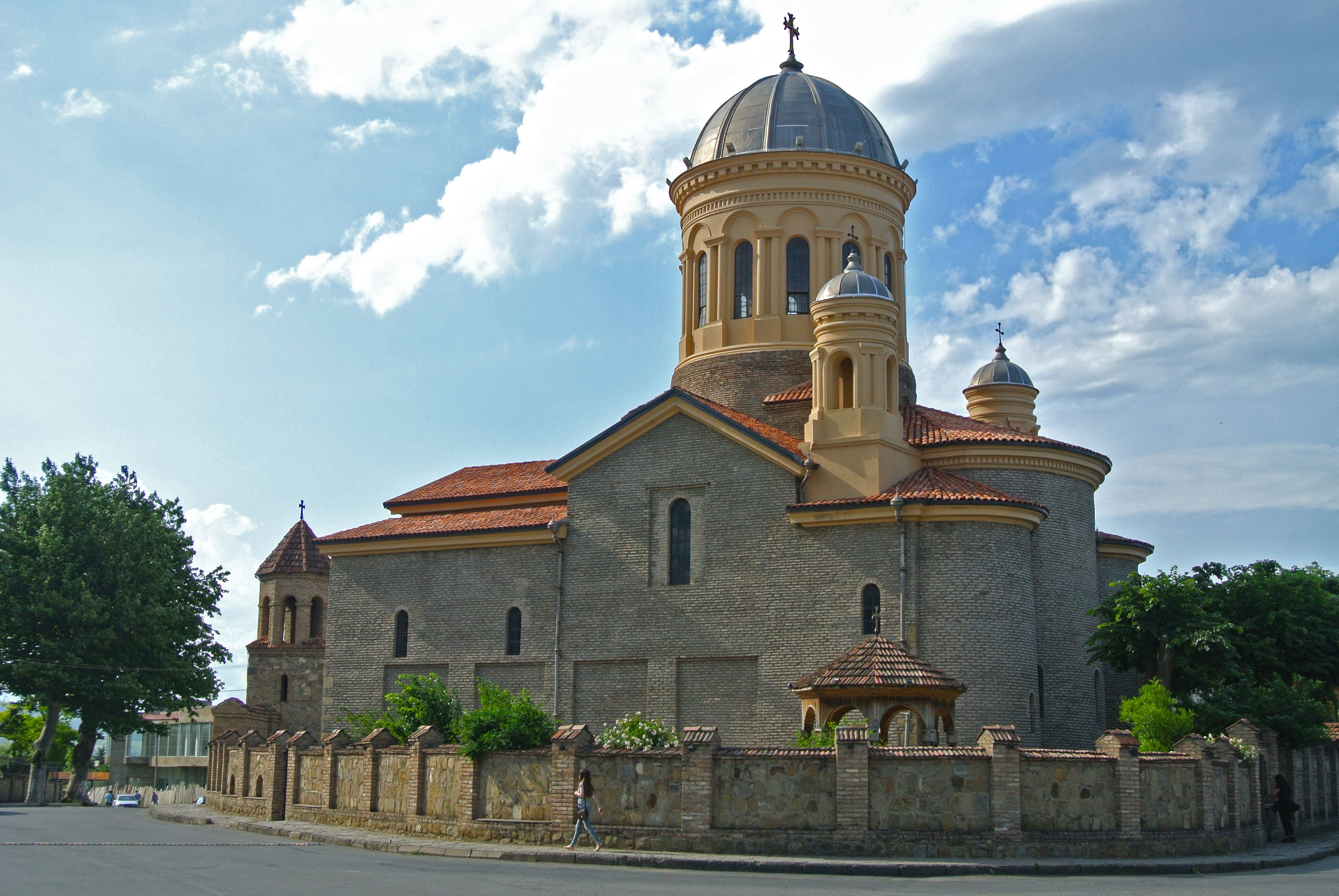
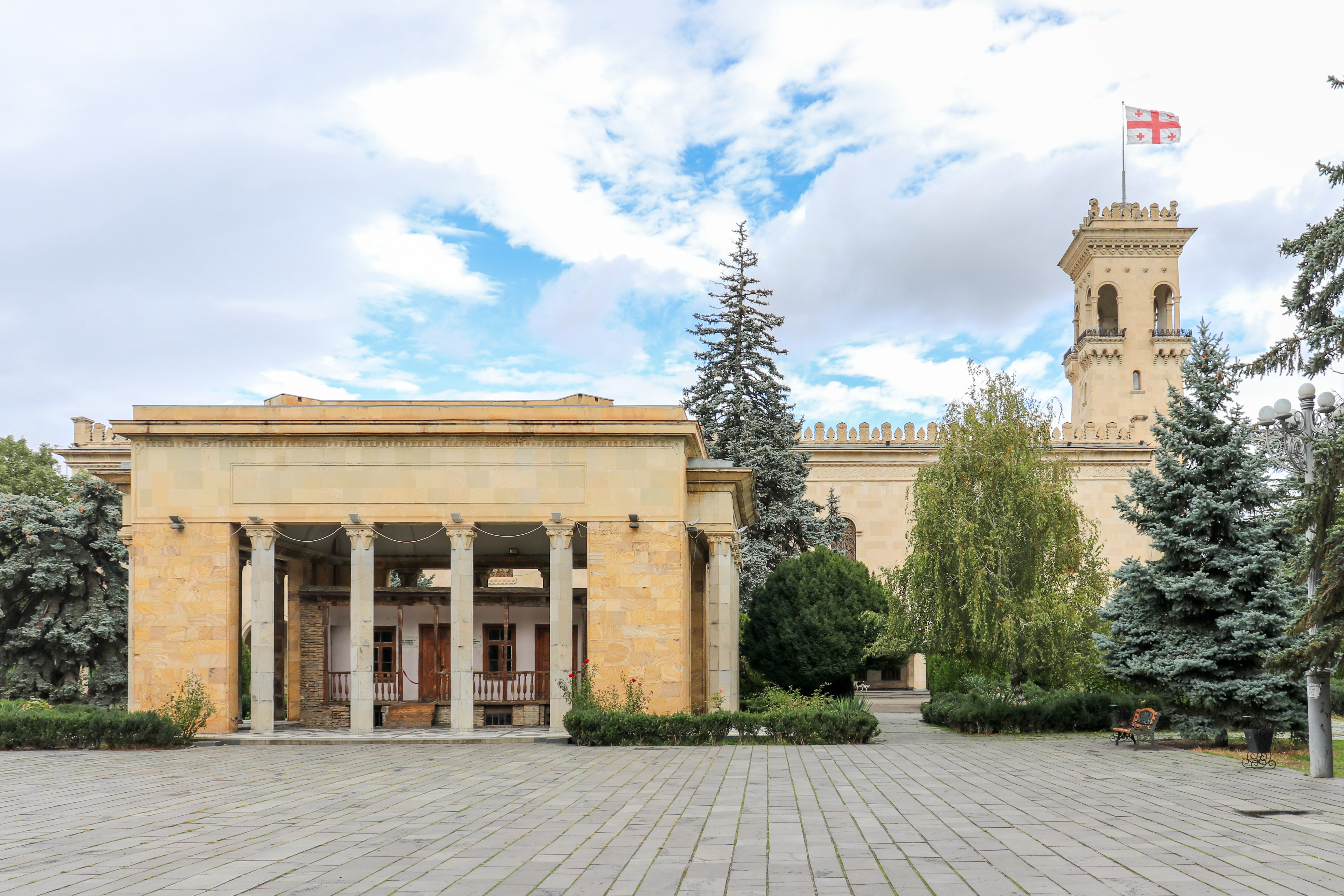 *
*
Official SiteMap of GoriLive Web Cam
{{Authority control Tiflis Governorate
Georgia
Georgia most commonly refers to:
* Georgia (country), a country in the Caucasus region of Eurasia
* Georgia (U.S. state), a state in the Southeast United States
Georgia may also refer to:
Places
Historical states and entities
* Related to the ...
, which serves as the regional
In geography, regions, otherwise referred to as zones, lands or territories, are areas that are broadly divided by physical characteristics (physical geography), human impact characteristics (human geography), and the interaction of humanity and t ...
capital of Shida Kartli
Shida Kartli ( ka, შიდა ქართლი, , ; "Inner Kartli") is a landlocked administrative region (''Mkhare'') in eastern Georgia. It comprises a central part of the historical-geographic province of Shida Kartli. With an area of , S ...
and is located at the confluence of two rivers, the Mtkvari
The Kura is an east-flowing river south of the Greater Caucasus Mountains which drains the southern slopes of the Greater Caucasus east into the Caspian Sea. It also drains the north side of the Lesser Caucasus while its main tributary, the Ar ...
and the Liakhvi. Gori is the fifth most populous city in Georgia. Its name comes from the Georgian word ''gora'' (გორა), meaning "heap", "hill", or "mountain".
A settlement known here from the Hellenistic period
In Classical antiquity, the Hellenistic period covers the time in Mediterranean history after Classical Greece, between the death of Alexander the Great in 323 BC and the emergence of the Roman Empire, as signified by the Battle of Actium in ...
, with the Gori Fortress
Gori Fortress ( ka, გორის ციხე, "Goris Tsikhe") is a medieval citadel in Georgia, situated above the city of Gori on a rocky hill.
Standing on the hilltop, the fortress's outlines follow the natural relief, hence the irregular ...
built at least in 7th century, it received town status in the 12th century. Gori was an important military stronghold in the Middle Ages and maintains a strategic importance due to its location on the principal highway connecting eastern and western parts of Georgia. In the course of its history, Gori has been invaded by the armies of regional powers several times. The city was occupied by Russian troops during the 2008 Russo–Georgian War
The 2008 Russo-Georgian WarThe war is known by a variety of other names, including Five-Day War, August War and Russian invasion of Georgia. was a war between Georgia, on one side, and Russia and the Russian-backed self-proclaimed republics of Sou ...
.
Gori is also known as the birthplace of the Soviet
The Soviet Union,. officially the Union of Soviet Socialist Republics. (USSR),. was a transcontinental country that spanned much of Eurasia from 1922 to 1991. A flagship communist state, it was nominally a federal union of fifteen nation ...
leader and politician Joseph Stalin
Joseph Vissarionovich Stalin (born Ioseb Besarionis dze Jughashvili; – 5 March 1953) was a Georgian revolutionary and Soviet political leader who led the Soviet Union from 1924 until his death in 1953. He held power as General Secretar ...
, ballistic missile designer Aleksandr Nadiradze
Aleksandr Davidovich Nadiradze ( ka, ალექსანდრე ნადირაძე, russian: Александр Давидович Надирадзе 20 August 1914 – 3 September 1987) was a Soviet engineer of Georgian ethnicity who ...
, and philosopher Merab Mamardashvili
Merab Mamardashvili ( ka, მერაბ მამარდაშვილი, russian: Мера́б Константи́нович Мамардашви́ли; September 15, 1930 – November 25, 1990) was a Georgian philosopher.
Biography
He ...
.
Geography and climate
Gori is located west of Georgia's capitalTbilisi
Tbilisi ( ; ka, თბილისი ), in some languages still known by its pre-1936 name Tiflis ( ), is the capital and the largest city of Georgia, lying on the banks of the Kura River with a population of approximately 1.5 million p ...
, at the confluence of the rivers Mtkvari
The Kura is an east-flowing river south of the Greater Caucasus Mountains which drains the southern slopes of the Greater Caucasus east into the Caspian Sea. It also drains the north side of the Lesser Caucasus while its main tributary, the Ar ...
and Greater Liakhvi, above sea level. The climate is humid continental
A humid continental climate is a climatic region defined by Russo-German climatologist Wladimir Köppen in 1900, typified by four distinct seasons and large seasonal temperature differences, with warm to hot (and often humid) summers and freez ...
, transitional from moderately warm steppe to moderately humid. Summer is usually hot. The average annual temperature is , minimal in January () and maximal in July and August (). The maximum precipitation falls in May () and minimum in February (). Precipitation here averages 603 mm.
History
 The territory of Gori has been populated since the early
The territory of Gori has been populated since the early Bronze Age
The Bronze Age is a historic period, lasting approximately from 3300 BC to 1200 BC, characterized by the use of bronze, the presence of writing in some areas, and other early features of urban civilization. The Bronze Age is the second prin ...
. According to medieval Georgian chronicles, the town of Gori was founded by King David IV
David IV, also known as David the Builder ( ka, დავით აღმაშენებელი, ') (1073–1125), of the Bagrationi dynasty, was the 5th king of United Georgia from 1089 until his death in 1125.
Popularly considered to be ...
(r. 1089–1125) who settled refugees from Armenia
Armenia (), , group=pron officially the Republic of Armenia,, is a landlocked country in the Armenian Highlands of Western Asia.The UNbr>classification of world regions places Armenia in Western Asia; the CIA World Factbook , , and ' ...
there. However, the fortress of Gori ( Goris-Tsikhe) appears to have been in use already in the 7th century, and archaeological evidence indicates the existence of an urban community in Classical Antiquity
Classical antiquity (also the classical era, classical period or classical age) is the period of cultural history between the 8th century BC and the 5th century AD centred on the Mediterranean Sea, comprising the interlocking civilizations of ...
. In 1299, Gori was captured by the Alan tribesmen fleeing the Mongol conquest
The Mongol invasions and conquests took place during the 13th and 14th centuries, creating history's largest contiguous empire: the Mongol Empire (1206-1368), which by 1300 covered large parts of Eurasia. Historians regard the destruction under t ...
of their original homeland in the North Caucasus
The North Caucasus, ( ady, Темыр Къафкъас, Temır Qafqas; kbd, Ишхъэрэ Къаукъаз, İṩxhərə Qauqaz; ce, Къилбаседа Кавказ, Q̇ilbaseda Kavkaz; , os, Цӕгат Кавказ, Cægat Kavkaz, inh, ...
. The Georgian king George V
George V (George Frederick Ernest Albert; 3 June 1865 – 20 January 1936) was King of the United Kingdom and the British Dominions, and Emperor of India, from 6 May 1910 until his death in 1936.
Born during the reign of his grandmother Qu ...
recovered the town in 1320, pushing the Alans back over the Caucasus mountains
The Caucasus Mountains,
: pronounced
* hy, Կովկասյան լեռներ,
: pronounced
* az, Qafqaz dağları, pronounced
* rus, Кавка́зские го́ры, Kavkázskiye góry, kɐfˈkasːkʲɪje ˈɡorɨ
* tr, Kafkas Dağla ...
.
 With the downfall of the medieval
With the downfall of the medieval Georgian kingdom
The Kingdom of Georgia ( ka, საქართველოს სამეფო, tr), also known as the Georgian Empire, was a medieval Eurasian monarchy that was founded in circa 1008 AD. It reached its Golden Age of political and economic ...
, Gori – strategically located at the crossroads of major transit routes – was frequently targeted by foreign invaders, and changed its masters on several occasions. It was first taken and sacked by Uzun Hassan
Uzun Hasan or Uzun Hassan ( اوزون حسن; fa, اوزون حسن; 1423 – January 6, 1478; where ''uzun'' means "tall" in Oghuz Turkic) was a ruler of the Turkoman Aq Qoyunlu state and is generally considered to be its strongest ruler. H ...
of the Ak Koyunlu in 1477, followed by Tahmasp I of Persia in the mid-16th century. By the end of that century, Gori briefly passed to the Ottomans through the 1578–90 Ottoman–Persian War, and became their major outpost in Georgia until being recovered by the Georgians under Simon I of Kartli
Simon I the Great ( ka, სიმონ I დიდი), also known as Svimon ( ka, სვიმონი) (1537–1611), of the Bagrationi dynasty, was a Georgian king of Kartli from 1556 to 1569 and again from 1578 to 1599. His first tenure w ...
after heavy fighting in 1599. The town was once again garrisoned by the Persians under Shah Abbas I
Abbas I ( fa, ; 27 January 157119 January 1629), commonly known as Abbas the Great (), was the 5th Safavid Shah (king) of Iran, and is generally considered one of the greatest rulers of Iranian history and the Safavid dynasty. He was the third so ...
in 1614. Following successive occupations by the Ottomans (1723–35) and Persians
The Persians are an Iranian ethnic group who comprise over half of the population of Iran. They share a common cultural system and are native speakers of the Persian language as well as of the languages that are closely related to Persian.
...
(1735–40s), Gori returned to Georgian control under the kings Teimuraz II and Erekle II
Heraclius II ( ka, ერეკლე II), also known as Erekle II and The Little Kakhetian ( ka, პატარა კახი ) (7 November 1720 or 7 October 1721 C. ToumanoffHitchins, KeithHeraclius II. ''Encyclopædia Iranica Online edit ...
whose efforts helped to advance economy and culture in the town. Following the Russian
Russian(s) refers to anything related to Russia, including:
*Russians (, ''russkiye''), an ethnic group of the East Slavic peoples, primarily living in Russia and neighboring countries
*Rossiyane (), Russian language term for all citizens and peo ...
annexation of Georgia, Gori was granted the status of a town within the Gori Uyezd of the Tiflis Governorate
The Tiflis Governorate was a province ('' guberniya'') of the Caucasus Viceroyalty of the Russian Empire with its administrative center in Tiflis (present-day Tbilisi). In 1897, it constituted 44,607 sq. kilometres in area and had a population ...
in 1801. It grew in size and population throughout the 19th century. A plan of 1824 shows the town on the hill slopes below the citadel, and a mote around it. The town was destroyed in the 1920 earthquake, and almost completely rebuilt in the Soviet period
The history of Soviet Russia and the Soviet Union (USSR) reflects a period of change for both Russia and the world. Though the terms "Soviet Russia" and "Soviet Union" often are synonymous in everyday speech (either acknowledging the dominance ...
. An important industrial center in Soviet times, Gori suffered from an economic collapse
Economic collapse, also called economic meltdown, is any of a broad range of bad economic conditions, ranging from a severe, prolonged depression with high bankruptcy rates and high unemployment (such as the Great Depression of the 1930s), to a ...
and the outflow of the population during the years of a post-Soviet crisis of the 1990s.
Gori is close to the Georgian–Ossetian conflict zone. It is connected to breakaway South Ossetia
South Ossetia, ka, სამხრეთი ოსეთი, ( , ), officially the Republic of South Ossetia – the State of Alania, is a partially recognised landlocked state in the South Caucasus. It has an officially stated populat ...
's capital Tskhinvali
Tskhinvali ( ka, ცხინვალი ) or Tskhinval ( os, Цхинвал, Чъреба, Tskhinval, Chreba, ; rus, Цхинва́л(и), r=Tskhinvál(i), ) is the capital of the disputed ''de facto'' independent Republic of South Ossetia, in ...
via a railroad spur which has been defunct since the early 1990s. Since the 2000s, Georgia has increased the military infrastructure in and around the city. Thus, the Central Military Hospital was relocated from Tbilisi to Gori and re-equipped in October 2006. On January 18, 2008, Georgia's second NATO
The North Atlantic Treaty Organization (NATO, ; french: Organisation du traité de l'Atlantique nord, ), also called the North Atlantic Alliance, is an intergovernmental military alliance between 30 member states – 28 European and two No ...
-standard base to accommodate the 1st Infantry Brigade (Georgia) of the Georgian Ground Forces was established at Gori. The Georgian Agrarian Science Academy Branch was established in the city in 1995; this became Sukhishvili University in 2003.
2008 conflict
 In the 2008
In the 2008 Russo-Georgian War
The 2008 Russo-Georgian WarThe war is known by a variety of other names, including Five-Day War, August War and Russian invasion of Georgia. was a war between Georgia, on one side, and Russia and the Russian-backed self-proclaimed republics of Sou ...
, the town came under aerial attack by the Russian Air Force from the outset of the conflict. Military targets and residential districts of Gori were hit by the airstrikes, resulting in civilian injuries and deaths. Human Rights Watch
Human Rights Watch (HRW) is an international non-governmental organization, headquartered in New York City, that conducts research and advocacy on human rights. The group pressures governments, policy makers, companies, and individual human r ...
(HRW) claimed that Russian forces had indiscriminately deployed cluster bombs
A cluster munition is a form of air-dropped or ground-launched explosive weapon that releases or ejects smaller submunitions. Commonly, this is a cluster bomb that ejects explosive bomblets that are designed to kill personnel and destroy vehicl ...
in civilian areas around Gori. According to HRW, on August 12 Russian forces dropped cluster bombs in the center of Gori, killing 11 civilians and wounding dozens more. Russian military officials deny using cluster munitions in the conflict, calling the HRW assertion "slanderous" and questioning the HRW's objectivity. Numerous unexploded "bomblets" have been found by locals and HRW employees.
By August 11, Georgian military personnel, government, and most residents had fled the city, which was then captured and occupied by the Russian military
The Armed Forces of the Russian Federation (, ), commonly referred to as the Russian Armed Forces, are the military forces of Russia. In terms of active-duty personnel, they are the world's fifth-largest military force, with at least two m ...
and South Ossetian separatist militia. HRW accused the militia of unleashing a campaign of looting, arson, kidnapping and other attacks against the remaining civilian population. The Russian and South Ossetian forces withdrew from the city on August 22, 2008.Civil Georgia: "Police Back in Gori"23 August 2008 The following day Units of the Georgian Army returned to Gori. However, Russian checkpoints remained near Gori as well as in so-called buffer zones near the borders with Abkhazia and South Ossetia.
Demographics


Landmarks


 Gori and its environs house several notable cultural and historical landmarks. Although for many foreigners Gori is principally known as the birthplace of
Gori and its environs house several notable cultural and historical landmarks. Although for many foreigners Gori is principally known as the birthplace of Joseph Stalin
Joseph Vissarionovich Stalin (born Ioseb Besarionis dze Jughashvili; – 5 March 1953) was a Georgian revolutionary and Soviet political leader who led the Soviet Union from 1924 until his death in 1953. He held power as General Secretar ...
, in Georgian historical memory the city has long been associated with its citadel, the Gori Fortress
Gori Fortress ( ka, გორის ციხე, "Goris Tsikhe") is a medieval citadel in Georgia, situated above the city of Gori on a rocky hill.
Standing on the hilltop, the fortress's outlines follow the natural relief, hence the irregular ...
, which is built on a cliffy hill overlooking the central part of the modern city. On another hill stands the 18th century St. George's church of Gorijvari, a popular place of pilgrimage. The famous ancient rock-hewn town of Uplistsikhe
Uplistsikhe ( ka, უფლისციხე ; literally, "the lord's fortress") is an ancient rock-hewn town in eastern Georgia, some 10 kilometers east of the town of Gori, Shida Kartli.
Built on a high rocky left bank of the Mtkvari River, it ...
and the 7th century Ateni Sioni Church are located not far from Gori.
Stalin's association with the city is emphasized by the Joseph Stalin Museum in downtown Gori and, until recently, the Stalin monument in front of the Gori City Hall, one of the few such monuments to survive Nikita Khrushchev
Nikita Sergeyevich Khrushchev (– 11 September 1971) was the First Secretary of the Communist Party of the Soviet Union from 1953 to 1964 and chairman of the country's Council of Ministers from 1958 to 1964. During his rule, Khrushchev s ...
's de-Stalinization program. The monument was a source of controversy in a newly independent Georgia in the 1990s, but for several years the post-communist government acceded to the Gori citizens' request and left the statue untouched. It was ultimately removed on June 25, 2010. However, on 20 December 2012, the municipal assembly of Gori voted to reinstate the monument.
Administrative divisions
The city is divided into 11 administrative districts, they are:Notable people
* Anastasia Eristavi-Khoshtaria (1868-1951), novelist *Joseph Stalin
Joseph Vissarionovich Stalin (born Ioseb Besarionis dze Jughashvili; – 5 March 1953) was a Georgian revolutionary and Soviet political leader who led the Soviet Union from 1924 until his death in 1953. He held power as General Secretar ...
(1878–1953), Soviet leader
* Simon Arshaki Ter-Petrosian (1882–1922), revolutionary
*Vano Muradeli
Vano Muradeli ( ka, ვანო მურადელი; russian: Вано Ильич Мурадели; in Gori – 14 August 1970, in Tomsk), was a Soviet Georgian composer.
He was born in Gori, Georgia (then part of Imperial Russia) t ...
(1908–1970), composer
* Aleksandre Machavariani (1913–1995), composer
*Aleksandr Nadiradze
Aleksandr Davidovich Nadiradze ( ka, ალექსანდრე ნადირაძე, russian: Александр Давидович Надирадзе 20 August 1914 – 3 September 1987) was a Soviet engineer of Georgian ethnicity who ...
(1914–1987), inventor
*Edvard Mirzoyan
Edvard Mik'aeli Mirzoyan ( hy, Էդվարդ Միքայելի Միրզոյան; May 12, 1921 – October 5, 2012) was an Armenian composer.
Edvard Mirzoyan was born in Gori, Georgia. He called himself an atheist, but added, "There is only one pla ...
(1921–2012), composer
*Sulkhan Tsintsadze
Sulkhan Fyodorovich Tsintsadze ( ka, სულხან ცინცაძე), (August 23, 1925 in Gori, Transcaucasian SSR, Soviet Union – September 15, 1991 in Tbilisi, Georgia) was one of Georgia's foremost composers.
Education
Tsin ...
(1925–1991), composer
*Merab Mamardashvili
Merab Mamardashvili ( ka, მერაბ მამარდაშვილი, russian: Мера́б Константи́нович Мамардашви́ли; September 15, 1930 – November 25, 1990) was a Georgian philosopher.
Biography
He ...
(1930–1990), philosopher
*Giorgi Tenadze
Giorgi Tenadze ( ka, გიორგი თენაძე) (born 24 May 1962 in Gori) is a Georgian judoka who competed for the Soviet Union in the 1988 Summer Olympics
The 1988 Summer Olympics (), officially known as the Games of the ...
(born 1962), wrestler
* Vazha Tarkhnishvili (born 1971), footballer
*Georgi Kandelaki
Georgi Kandelaki ( ka, გიორგი კანდელაკი; born April 10, 1974 in Variani, Georgian Soviet Socialist Republic, Soviet Union) is a retired Georgian boxer of Caucasus Greek descent, and current boxing administrator. He ...
(born 1974), boxer
* Lasha Shavdatuashvili (born 1992), wrestler
*Geno Petriashvili
Geno Petriashvili (გენო პეტრიაშვილი; born 1 April 1994) is a Georgian heavyweight freestyle wrestler. He is European champion in 2016 and 2020 and world champion in 2017, 2018 and 2019, as well as a bronze medal at ...
(born 1994), wrestler
*Oto Nemsadze
Otar Nemsadze ( ka, ოთო ნემსაძე; born 18 June 1989) is a Georgian singer. Nemsadze is best known for winning season five of '' Geostar'' in 2010. He previously participated in season three of '' The Voice of Ukraine'', finishi ...
(born 1989), singer
*Vladimer Khinchegashvili
Vladimer Khinchegashvili ( ka, ვლადიმერ ხინჩეგაშვილი; born April 18, 1991) is a Georgian freestyle wrestler who competes in 55–61 kg categories. He won a silver medal at the 2012 Olympics and a gold ...
(born 1991), wrestler, Olympic & World Champion
Important sights
 *
* Gori Fortress
Gori Fortress ( ka, გორის ციხე, "Goris Tsikhe") is a medieval citadel in Georgia, situated above the city of Gori on a rocky hill.
Standing on the hilltop, the fortress's outlines follow the natural relief, hence the irregular ...
* Gori Cathedral of Saint Mary
* Gori State Historical-Ethnographic Museum
* Joseph Stalin State Museum
* House of Amilakhvris
* Monument to Nikoloz Baratashvili
Prince Nikoloz "Tato" Baratashvili ( ka, ნიკოლოზ "ტატო" ბარათაშვილი; 4 December 1817 – 21 October 1845) was a Georgian poet. He was one of the first Georgians to marry modern nationalism with European R ...
* Monument to Iakob Gogebashvili
Iakob Gogebashvili ( ka, იაკობ გოგებაშვილი) (October 15, 1840 – June 1, 1912) was a Georgian educator, children’s writer and journalist, considered to be the founder of the scientific pedagogy in Georgia. Throug ...
* Gori Pedagogical Institute
* Gori State Drama Theater
* Gori State Historical-Ethnographic Museum
* Gorijvari
* Erekle Baths
* Monument to Giorgi Eristavi
Giorgi Eristavi ( ka, გიორგი ერისთავი) (1813 – September 9, 1864) was a Georgia (country), Georgian playwright, poet, journalist, and the founder of modern Georgian theatre.
Prince Giorgi Eristavi was born in the vill ...
* Monument to Nico Lomouri
* Military city
* Theological School
References
External links
Official Site
{{Authority control Tiflis Governorate